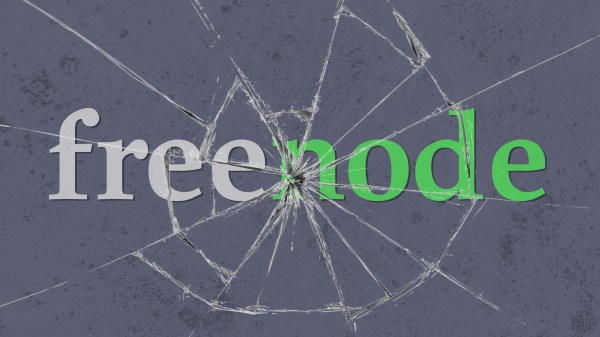The big kerfuffle in the open source world this week surrounds the biggest IRC server operator, Freenode. Wherever the dust settles, myriad important open source projects use Freenode’s IRC servers for their main channel of user feedback, and a number of vibrant communities call or called Freenode home. What you would call a 3D printer, and most of the software that drives it, for instance, was brainstormed up in Freenode’s #reprap. If you want help with a Linux distribution, you’ll be set straight within a few minutes in the relevant channel, because the people who wrote, packaged, or maintain it are probably on Freenode waiting to chat.
But suppose Freenode burns to the ground tomorrow, as some are suggesting. So what? My take is that is doesn’t matter. Freenode doesn’t own IRC, setting up an IRC server is essentially trivial, and what’s really important is the online community — they can just pick up and move somewhere else with very little hassle.
This is not to say that we don’t all benefit from the diligence that Freenode’s volunteer administrators and operators have donated to the cause over the years. IRC servers don’t run themselves, and Freenode’s admins fought and won an epic battle with spammers a couple years back. Keeping IRC running at scale is a different thing than setting up something for your friends, and so the Freenode folks definitely deserve our thanks.
But look, IRC is an old protocol and it’s a simple protocol. It’s so simple, in fact, that writing an IRC bot is just a few dozen lines in Python, using no external libraries. All you need to do is send plain text over a socket. You can do this — it makes a great networking hello world.
IRC is fun for hackers, but if you want a user-friendly GUI client, you ridiculously many to choose from. There are even no-install web clients if you just want to dip your toes in. Heck, you could install your own server in an hour or so.
So saying that the demise of Freenode is the end of IRC is a lot like saying that the end of Hotmail was the end of e-mail. In the grand scheme of things, almost nobody actually uses IRC — Freenode has 78,000 users while Slack has 10 million — and IRC users are very savvy, if not full-on geeky. These are the sort of people who can probably find the server field in a menu and change it from irc.freenode.net to irc.whatever.org.
In addition to our traditional #hackaday channel on irc.freenode.net, there’s also a channel set up on irc.libera.chat as well. There isn’t much action in either — IRC tends to be a slow conversation, so don’t freak out if someone responds to you an hour later — but if you want to swing by, we’re there. IRC will never die!
2021 Hackaday Prize Begins!
If you missed our announcement, this year’s Hackaday Prize is on! We’ve all had a rough year and a half, and it’s lead a lot of us to think seriously about our world. How would you want to change it going forward? Fifty entrants will rethink, refresh, and rebuild their way into $500, and the Grand Prize is $25,000. Get hacking!













